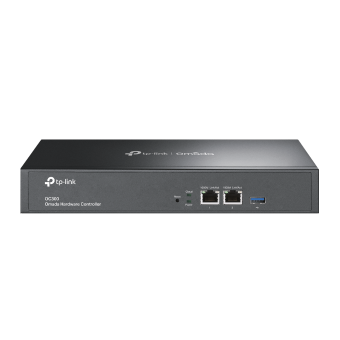What can I do when Omada Controller show offline from Omada Cloud
Contents
Troubleshooting on Software Controller
Troubleshooting on Hardware Controller
This article helps customers to fix the issue that Omada Controller gets offline from Omada Cloud in some circumstances due to the network environment or some other reasons.
- Omada Controller(Software Controller / Hardware Controller)
We provide ways to help you troubleshoot on Software Controller and Hardware Controller, you can choose the way according to your needs.
Troubleshooting on Software Controller
Step 1. Ensure the computer or laptop on which software controller is installed running all the time. Do NOT close the Software Controller from the computer or laptop.
Step 2. Ensure your gateway is working properly and your computer or laptop can get Internet. Try reboot gateway and reconnect computer or laptop to it and see if the Controller will be online again.
Step 3. Ensure you can log into the controller locally. Go to Global View->Settings->Cloud Access and re-enable the cloud access.

Step 4. Force to stop Software Controller and reopen it.
Step 5. Reboot your computer or laptop.
Troubleshooting on Hardware Controller
Step 1. Check whether the LED status on hardware controller, especially the Cloud LED.
On: The device is bound to a TP-Link ID.
Slow Flashing: The device is connected to cloud but not bound to a TP-Link ID.
Quick Flashing: The device is being reset to its factory default settings.
Off: The device is disconnected from cloud.

Step 2. Check whether gateway working fine. Connect a computer to Hardware Controller’s second LAN port and try to continuously ping the external IP (for example, ping 8.8.8.8 -t), confirm if the ping result is okay all the time.

Step 3. Check whether the Hardware Controller can get access to the Internet. Go to Global View->Tools->Network Check and try to continuously ping the external IP (for example, ping 8.8.8.8), confirm if the ping result is okay all the time.

Step 4. Verify if you can access your controller with its local IP address from the LAN network. If yes, go to Global View->Settings->Cloud Access and re-enable the cloud access.

Step 5. Reboot your hardware controller.
Step 6. Replace the cable between hardware controller and your gateway or switch.
The above steps will help you solve the cloud access offline problem.
Get to know more details of each function and configuration please go to Download Center to download the manual of your product.
Is this faq useful?
Your feedback helps improve this site.
TP-Link Community
Still need help? Search for answers, ask questions, and get help from TP-Link experts and other users around the world.










1.0_normal_1592202397383a.png)